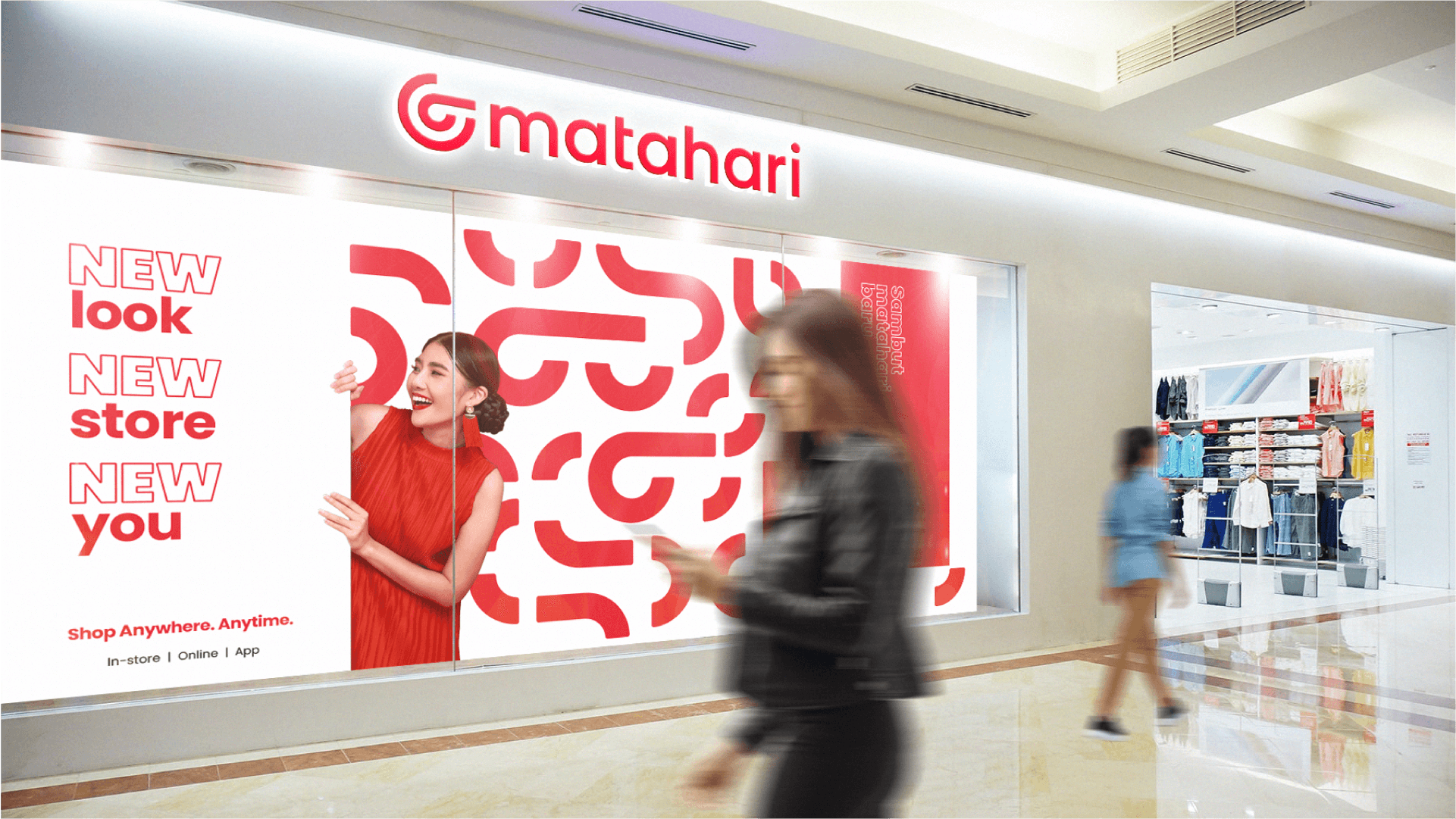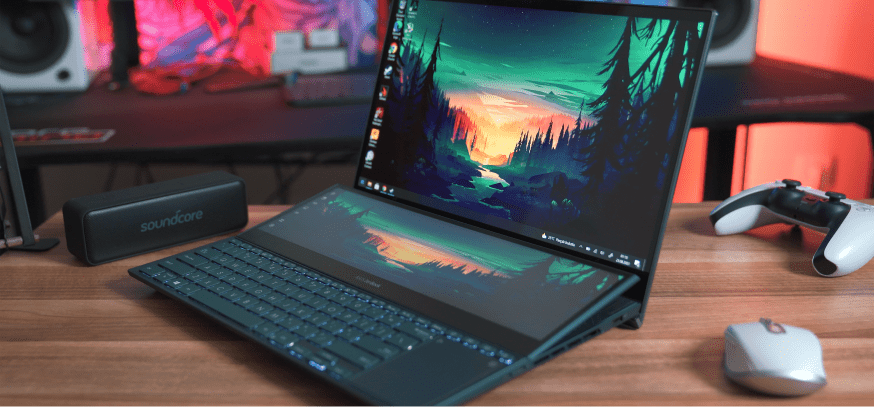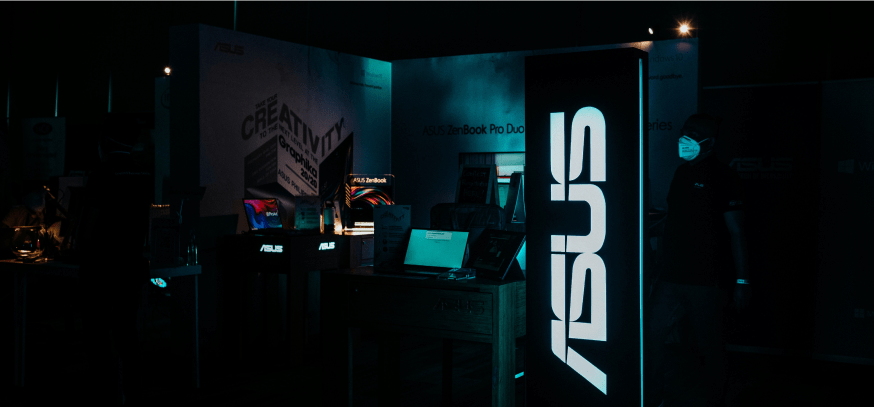Matahari Department Store
Seamless Shopping: Matahari's Omnichannel Triumph
- Home
- Credentials
- Matahari Department Store
We deliver measurable results
Get to know Matahari Department Store
Matahari is the largest retail platform in Indonesia, with 155 stores in 81 cities across Indonesia as well as presence online on Matahari.com. Employing around 30,000 employees and partnering with around 600 local/international suppliers, for over 60 years, Matahari has provided the growing Indonesian middle class with quality, fashionable and affordable apparel, beauty and footwear products.
The Company has received many industry recognitions – nationally and internationally – including Top 100 Most Valuable Brand by Brand Finance, Top 500 Retail Asia Pacific from Retail Asia, Euromonitor & KPMG; Brand Asia 2018 – Top 3 Most Powerful Retail Brands in Indonesia from Nikkei BP Consulting, etc.

Challenges
We help brands craft targeted solutions for
A Time of Disruption Amidst COVID-19
Despite its solid brand reputation and standing in Indonesia, Matahari faced the daunting challenge of adapting swiftly to the shifting landscape of “the new normal” and changing customer behavior due to the COVID-19 pandemic. The imperative was to implement eCommerce solutions rapidly to mitigate potential revenue loss.
Fragmented Customer Experiences
Prior to the transformation, Matahari grappled with fragmented customer experiences in its online-to-offline (O2O) interactions. There was a lack of a unified brand message with no overarching brand image or customer service strategy to provide continuity to the shopping journey in the online stores while in-store processes remained entrenched in manual workflows, leading to disjointed customer journeys across both physical and online channels.
Legacy Tech Stack’s Limitations
Matahari’s legacy technology stack posed limitations that hindered technical performance. The outdated marketplace architecture did not align with Matahari’s single-brand website. Slow page load times, a cumbersome checkout process, and poor product discovery were commonplace. Meanwhile, maintenance and upgrades incurred substantial costs and lacked the flexibility and customization offered by modern tech systems.
Underutilized eCommerce Revenue
Despite a strong offline presence, Matahari was underutilizing its online revenue potential, with only 20% of stock being sold through its eCommerce store compared to 80% of offline sales. This discrepancy necessitated a solution to maximize online revenue.


Success mentality
“Thanks to the omnichannel solution from SmartOSC, we were able to launch a scalable and customizable eCommerce platform just in time for our nation’s shopping peak – the Lebaran holiday. In just four weeks, we saw our mobile and desktop site traffic increase, which led to a strong double-digit uptick in year-on-year trade. Our motto has always been to treat our customers as the lifeblood of our business, and so we are thrilled that the suite of capabilities now available across touchpoints aligns with this philosophy.”
 Terry O’ConnorChief Executive Officer, PT Matahari Department Store Tbk
Terry O’ConnorChief Executive Officer, PT Matahari Department Store Tbk



We bring real results
S$ +1.3k
Average order value
31%
More page views
56%
Revenue growth
<3 days
Delivery lead time
Solutions
Our tool for success
Omnichannel Retail Strategy
Matahari adopted an omnichannel retail strategy, allowing customers to purchase products online and pick them up in-store. Multiple online and offline delivery and payment options were introduced, tailoring the consumer experience to individual preferences and boosting user satisfaction.
Key components of this strategy included the migration to a Magento 2 platform, enabling omnichannel experience by syncing products and offerings across six channels: multi-warehouse management, online booking appointments, click-and-collect services, and the development of a mobile app.
Quicklaunch with Minimum Viable Product
SmartOSC implemented a Minimum Viable Product (MVP) approach to shorten the time-to-market ans mimimize the impact on revenue. This involved creating the essential solution package needed for the launch and then continuously analyzing results, developing enhancements based on insights, and relaunching to improve the service offering. This agile process ensured a swift response to market dynamics, prioritizing speed and quality throughout the project.
Efficient Enterprise Technologies
To replace the outdated eCommerce site, which was based on a unsuitable marketplace structure, SmartOSC migrated Matahari to the enterprise-level Magento Commerce platform from Adobe. It allowed Matahari to shift focus from a marketplace structure to building and promoting their brand.
This upgrade resulted in faster page load times, a streamlined checkout process, and significantly improved website performance. Maintenance and periodic upgrades were included in an integrated package, making it more cost-effective.
Multi-brand Rollout
SmartOSC facilitated a multi-brand rollout to tap into previously missed online revenue. A dynamic system was introduced, enabling Matahari to sell and promote products from various brands in a flexible and easily adjustable manner.
Download case study
Download now









